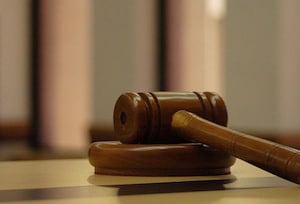The U.S. Supreme Court ruled against plaintiffs yesterday in a lawsuit (American Electric Power Co. v. Connecticut) brought by six states against several utility companies and the government-owned Tennessee Valley Authority. The states (California, Connecticut, Iowa, New York, Rhode Island, and Vermont) were attempting to force the utility companies to cut their greenhouse gas (GHG) emissions on the grounds that the emissions were a “public nuisance.” The Court unanimously declared that the judiciary should stay out of the matter because the Environmental Protection Agency (EPA) already has the authority to regulate emissions under the Clean Air Act.
President Obama previously stated that he stood with the utility companies in this suit, as well as in a similar suit being decided in a lower court. The utility companies in the suit included Duke Energy, American Electric Power, Southern Co, Excel Energy, and the aforementioned Tennessee Valley Authority.
The conservative think tank Heritage Foundation wasted no time yesterday in claiming that the Court’s ruling was a major blow to environmentalists, and managed to take a cheap shot at some of the liberal members of the court:
In a coherent and entirely rational argument that one does not always see from a liberal justice like Ruth Bader Ginsburg, the opinion pointed out the fallacy of what the plaintiffs were trying to do – convince the federal courts to step into the role of environmental regulators and take the first stab at making complex scientific decisions. [emphasis added]
Heritage writer Hans von Spakovsky also pointed out that Justices Alito and Thomas disagreed with the Court’s previous ruling in Massachusetts v. EPA, where the Court ruled that the EPA has the authority to regulate GHG emissions:
Justice Alito wrote a very short concurrence, joined by Justice Thomas, that consisted of just one paragraph. Alito joined in the judgment of the court, but did so “on the assumption (which I make for the sake of argument because no party contends otherwise) that the interpretation of the Clean Air Act adopted by the majority in Massachusetts v. EPA is correct.” In other words, Alito and Thomas were questioning what many have previously disputed – the erroneous conclusion of the Court that carbon dioxide is even a “pollutant” that is covered under the Clean Air Act.
The Heritage Foundation has a long history of denying climate change and attempting to downplay the effects. Earlier this year, the group wrote about how environmental activists were attempting to use the courts to pursue their agenda:
The recent spate of global warming lawsuits is an attempt to circumvent the political process and implement public policy by judicial fiat. Unable to advance their policies through Congress, global warming activists have turned to the judiciary to implement their agenda. Although this legislation-through-litigation violates the Constitution’s separation of powers principles, some federal judges are receptive to such lawsuits.
There is also a certain element of greed driving climate change litigation. The plaintiffs’ bar earned literally billions of dollars in attorneys’ fees in the court fight against tobacco companies, and the latest generation of plaintiffs’ attorneys sees the current battle over climate change as an opportunity for another legal fee bonanza—one that could easily eclipse the windfall from tobacco lawsuits. The personal injury bar is interested only in deep-pocket American energy and utility companies, even though any of the many producers of “greenhouse gasses” like carbon dioxide could be a target.
Last year, Ben Lieberman, the Senior Policy Analyst for Energy and Environment at The Heritage Foundation, wrote an op-ed claiming: “What I conclude from a policy standpoint is that global warming is clearly not a crisis and should not be addressed as one…None of the scary stuff about global warming is true, and what is true about global warming, what the science actually tells us about man’s role in changing the climate, is far from terrifying.”
It should come as no surprise that some of the biggest financiers of the Heritage Foundation include oil giants Exxon Mobil and Chevron Texaco. In addition, Greenpeace has pointed out that the organization received more than $2 million from Koch foundations from 1997 – 2009. Greenpeace and DeSmogBlog have also noted that Heritage has been involved in a strategic cover up of climate science and that the group has been leading the misinformation campaign on climate change for years.
The Court’s ruling might seem like a setback, but there is clearly a silver lining. Justice Ruth Bader Ginsberg, who wrote the opinion in the ruling, said that the plaintiffs were simply making their case in the wrong forum.
Furthermore, this ruling reaffirms the Court’s previous ruling that EPA has the authority to regulate this air pollution under the Clean Air Act. While some politicians are working to repeal the EPA’s authority, the U.S. Supreme Court just gave the agency a much-needed boost.
Subscribe to our newsletter
Stay up to date with DeSmog news and alerts






